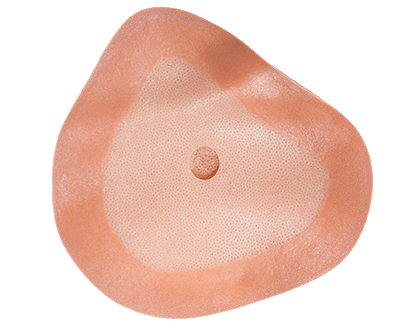The sixties are well known for birthing the sexual revolution, where the radical concept was raised that women also had sexual need and desires.This is the time period of the breakthrough Birth Control Pill, Playboy Magazine, and Sex and the Single Girl was published, and vibrators were beginning to be endorsed by women’s magazines for sexual pleasure.Much has changed in several decades including the easy availability of pornography of every genre via the internet, vibrators of all sorts delivered to your door in 2 days (Thanks Amazon!), and now there is a “little pink pill” to help women have sex (often compared to Viagra).However, it is common for women of all ages to have sexual problems.Often they are uncomfortable discussing these issues with their partners or doctors, sometimes thinking that they are “broken”.Compounding this issue is that most healthcare professionals do not ask their patients about their sexual activity and sexual health.I will discuss some of the most common issues, and debunk some of the myths about sex.
What is Normal?
I get this question a lot in my practice.Women are more and more concerned about what looks and feels “normal”.This has led to an increase in vulvoplasty and vaginoplasty to achieve the “perfect” body part.Every body is different and that goes for our vaginas too.“The Great Wall of Vagina” (2008 by artist Jamie McCartney) illustrates this beautifully.Four hundred women allowed her to makes castings of their vulvas and she made it into art.We are all beautifully and wonderfully made and your vulva and vagina is normal!
Research shows that sexual frequency varies by age, health status, and whether you are single, partnered, or married.Every couple is different. The “right” frequency is one that satisfies both partners.Communication with your partner is the key to success with regard to frequency.
Sexual complaints in women
A study from Laumann published in JAMA in 1999, of 1749 women who were ages 18-59, determined that sexual dysfunction is more prevalent for women (43%) than men (31%). Of these women, 32% complained of lack of sex, 27% were unable to achieve orgasm, 28% found sex not pleasurable, and 21% had pain during sex.
Another study found Baby Boomers, who self-reported good sex exercised at least 2 x/week, enjoyed 1-2 social drinks/week, had good gum health, a healthy BMI, and stayed hydrated.Factors that contribute to poor sexual activity included musculoskeletal problems, cancer, bowel and bladder problems, poor vision, cardiovascular disease, joint pain, gum disease, hearing loss, dementia, poor communication and financial worries.I recommend a good physical exam and treatment to address physical issues that may be contributing to decreased sexual health and satisfaction by a GYN or pelvic health physical therapist.
Self-exploration
It can be difficult to have great sex with a partner if you are unfamiliar with your own body.I encourage all women to grab a hand mirror and spend some time examining your girl bits as diligently as we do with our faces.We need to understand what all the parts are, how they work, and notice any changes in skin condition, discharges, odors, etc.Many women have never looked or touched themselves due to shame, fear, and cultural or religious pressures.How can we expect our partners to know how to push the right buttons, if we don’t know ourselves?There are some great books on this subject that I recommend to my patients; two of my favorites are Come as You Are, by Emily Nagoski, Ph.D., and Women’s Anatomy of Arousal: Secret Maps to Buried Pleasure by Sheri Winston.
Lube, Toys, and Care
There is no need for vigorous cleaning of our girl parts.The vagina is like a self-cleaning oven, and needs no special soaps, lotions, douches, or over-cleaning.Our vaginas have a microbiome much like our guts with a special balance of flora and fauna that keeps our pH balanced.Harsh soaps, douches, and some lubricants can disrupt this pH balance and cause irritation at best, and infections like yeast and bacterial vaginosis at worst.The best cares is gentle soap and water to the labia majora, and your backside, but go no deeper than that!No scrubbing needed.
Not all lubricants are the same.Many common brands that are used in doctor’s offices contain ingredients that are vulvar irritants.If you are experiencing burning, itching, or stinging during sex, your lubricant may be to blame.Check ingredients carefully.Coconut oil is often recommended, but this can sometimes disrupt the good bacteria that live in our vaginas.Stick with water-based or silicone-based lubricants for vaginal penetration, oil-based lubricants for anal sex work best.Water-based is also best for use of condoms.Vaginal moisturizers are different than lubricants and contain ingredients to keep the vagina well-moisturized as should contain good hydrating ingredient like what we use on our faces.Many women after menopause, or after cancer treatments, complain of significant vaginal dryness and a combination of vaginal moisturizers, and lubricants, is a winning combination for comfort with sex!
There are many varieties of vibrators, and I recommend that every woman have at least one.Only 30% of women are able to achieve orgasm by vaginal penetration alone.That’s right, most women need some other type of stimulation to achieve climax.Toys of all shapes and sizes can assist with not only orgasm, but there are types that also help with arousal.Women need increased time for sexual arousal (here’s where foreplay comes in) to help with tissue engorgement similar to what men experience. Lubricants and toys make everything more enjoyable with achieving both arousal and climax whether solo or with a partner!
Your pelvic floor muscles are super important for bowel and bladder control, as well as sexual satisfaction.Dr. Arnold Kegel (rhymes with bagel) was an American gynecologist who identified the weakness in pelvic floor muscles after childbirth and the exercises to strengthen them.These muscles can be too tight and inflexible which can cause pain, constipation, and urinary incontinence.Or they can be too lax, causing bowel and bladder incontinence, and pelvic organ prolapse.Getting these muscles working in a coordinated manner can not only eliminate bowel and bladder issues, it can also increase orgasmic appreciation!If you have issues with your pelvic floor muscles, get yourself evaluated by a pelvic physical therapist or gynecologist for a treatment plan.
Sex is an Activity of Daily Living (ADL)
Sexual health is a state of mental, physical, and social well-being that requires a positive and respectful approach to sexuality and sexual relationships.It is integral to having pleasurable and safe sexual experiences, free of coercion and discrimination. It is every bit as important and eating, sleeping, and exercising for our bodies. So start exploring your bodies, and enjoy some fabulous sex.



